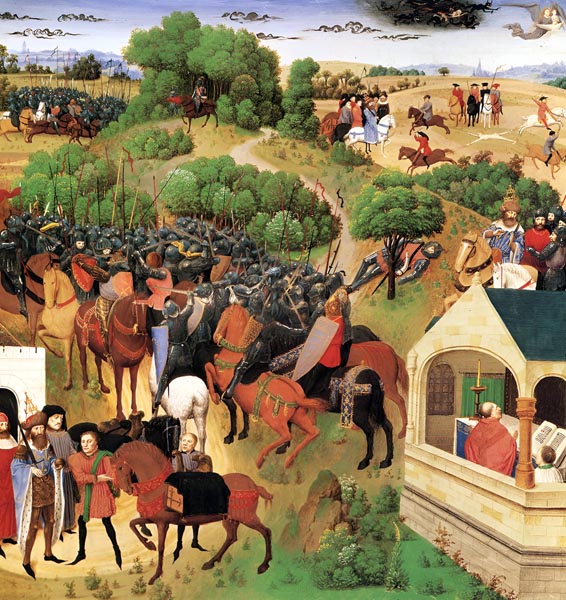News
Turold: The Song of Roland
Our new translation (in blank verse) of La Chanson de Roland is now available here.
‘La Chanson de Roland’ or ‘The Song of Roland’, attributed, with a degree of uncertainty, to the otherwise unknown Turold, is an 11th-century chanson de geste (a literary form that flourished between the 11th and 16th centuries in Europe, celebrating legendary deeds) which relates the tale of the Frankish warrior Roland at the Battle of Roncevaux (or Roncesvalles) Pass, in AD778, during the reign of the Emperor Charlemagne, King of France. The poem, the oldest major work of French literature extant, composed in Old French, is thought to have been drafted around 1040AD and subsequently enhanced during the period up to 1115AD. The historical battle was an ambush laid by the Basques against Charlemagne’s forces, in retaliation for the destruction of their capital Pamplona, however the poem, fictitiously, presents the encounter as a battle against the Muslim conquerors of Spain who, as the poem begins, have been defeated everywhere apart from Zaragoza. Roland was adopted in the 19th century as a French national hero, and this chanson de geste, in which he appears, as the French national epic. The major extant manuscript of the Song of Roland in Old French, dating between 1129AD and 1165AD and written in Anglo-Norman, is held at the Bodleian Library (MS Digby 23), Oxford, England.

News Update: August
15 August 2024Wagner's Parsifal
10 July 2024Wagner's Lohengrin
1 July 2024Baudelaire: Spleen de Paris
13 May 2024El Cantar del mio Cid
12 April 2024
Wagner's Tristan und Isolde
29 August 2024Aloysius Bertrand: Gaspard de la Nuit
2 September 2024Théophile Gautier: Selected Poems
10 September 2024Wagner's Tannhäuser
14 October 2024Make your own gallery
21 October 2024
Want to comment on this post? Then cookies (Learn more).
JulJunMayAprMarFebJan20242023202220212020201920182017201620152014List all articles
Most Recent:
Théophile Gautier: A Day In London
9 July 2025Théophile Gautier: Egypt
17 June 2025Théophile Gautier: Constantinople
12 June 2025Gérard de Nerval: Selected Poems
13 May 2025Gérard de Nerval: Sylvie
12 May 2025